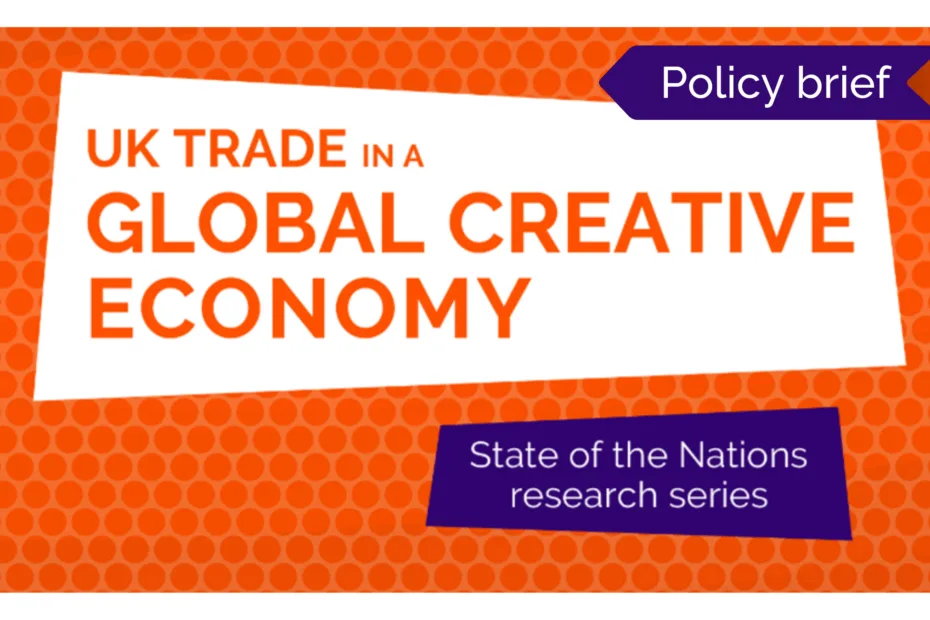This policy brief examines international trade in the UK creative industries. Drawing on our UK Trade in a Global Creative Economy State of the Nation report, the brief highlights key trends and offers policy recommendations to support the sector’s continued growth and competitiveness.
Key Findings:
- Strong export growth: Since 2010, creative industries service exports have grown three times faster than UK services overall. In 2021, the UK exported £45.6 billion in creative services and £9.1 billion in creative goods.
- Shifting export destinations: While Europe remains the largest market for UK creative exports, there has been a noticeable shift towards North America since the Brexit referendum, particularly in services.
- Digital trade boom: UK digital exports more than tripled from 9% of all trade in 2016 to 28% in 2021, with creative industries accounting for 67% of digital exports by 2021.
- Concentrated but changing export landscape: Fewer UK creative firms are exporting overall, but those that do are trading more intensively. Exports remain concentrated in London and the South East, though some regions like Northern Ireland have gained ground.
- Comparative advantage: The UK maintains a strong comparative advantage in creative services against most comparator countries, though this advantage has eroded somewhat since 2020.
Policy Recommendations:
- Improve digital trade measurement: Establish an independent Commission to develop a consistent approach to measuring digital trade, involving key departments (ONS, DCMS, DSIT, DBT) and drawing on international expertise.
- Prioritize creative industries in trade negotiations: Ensure creative sector priorities are central in new Free Trade Agreements, including strong IP protections, skilled worker mobility, and mutual recognition of qualifications.
- Address EU trade barriers: Prioritize creative industries in the upcoming review of the UK-EU Trade and Cooperation Agreement, focusing on reducing export barriers and addressing challenges for creative workers.
- Enhance export support: Provide targeted support for creative firms to export, especially at the regional level. This could include emphasizing exports in programs like the Create Growth Programme and embedding export strategies in devolution deals.
The brief underscores the vital importance of the creative industries to UK exports and economic growth. It highlights the need for tailored policies that address the sector’s unique challenges and opportunities, particularly in the rapidly evolving digital landscape. By implementing these recommendations, the UK can work to maintain its strong position in the global creative economy and unlock new opportunities for growth and innovation across the country.
For more details, read the full UK Trade in a Global Creative Economy report.
